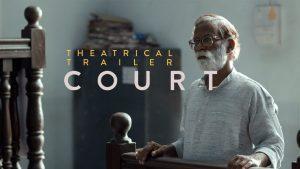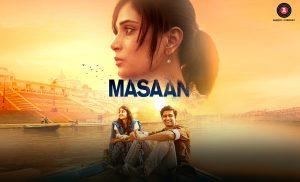"We are breeding a ban mentality. You are irritating people to the degree that it's suffocating them. We are educated people, we know what's right and what's not. Let us think for ourselves than follow a particular ideology."
- Anushka Sharma
It is not every day that Indian audience especially the Hindi moviegoers get an opportunity to watch an out of the box idea on big screen. It's not like Hindi cinema, in particular, doesn't concentrate on the content of the film, or ignore the artistic nature of a film, but the history of Indian cinema makes it clear that whenever filmmakers have tried to satiate their creative self through their cinema, the Censor Board whose main job is to only certify the movie has actually banned these films, and hence sealed their fate on the can forever.
There are some extraordinary films that were banned in India just because they touched a sensitive topic or had something out of the box that challenged the society's mentality. Be it M.S. Sathyu's 'Garam Hawa' which was initially banned for 8 months. It was only after so much effort put by the makers by showing the film to various political leaders that the film saw the light of the day. Even Gulzar's 'Aandhi' which was said to be based on the life of the then Prime Minister Indira Gandhi and her relationship with her estranged husband was eventually banned after 26 weeks after its release.
Another case in point is Shekhar Kapur's masterstroke 'Bandit Queen', released in 1994. The film had everything that filled the prerequisite for a ban. The movie by Shekhar Kapur was based on the life of Phoolan Devi. Phoolan Devi was already such a controversial figure in India and we do not have any second guesses about why. The film had explicit sexual content, nudity and foul language. This was soon followed by Mira Nair's 'Kama Sutra - A Tale of Love'. The movie was banned in India but released worldwide in 1996. The film is about four lovers that could not appeal to the saintly censor board. However, critics across the globe loved it and gave Mira the recognition she deserved. The film was considered to be indecent for the Indian public as it would infiltrate the mentality of our society, apparently. It raised quite a few eyebrows for its bold portrayal of intimate scenes. 'Kama Sutra' broke the shackles but perhaps, that is what you get for making a film like that in India.
Even though the censor board received extensive criticism for its actions, it did not quite understand what the audience was trying to say. Another movie that faced the "holier than thou" ban of the censor board was Pankaj Advani's 'Urf Professor'. The movie was centered around the chaos created by a missing car and a lottery ticket. According to the censor board, this movie had vulgar and bold scenes which were inappropriate for the audiences. Regardless of the ban, this is a movie to watch. Filmmakers have often been marginalized by the censor board for gritty yet realistic portrayals of daily life. One such filmmaker who has been at constant war with the censor board is Anurag Kashyap. His film 'Paanch' was allegedly based on the Joshi Abhyankar serial murders in 1997. The movie was banned by the censor board for its portrayal of violence, foul language, and drug abuse. It would have been a surprise if it was not banned with so much for the censor board to digest.
As we fast forward to the early 2000s, the world started progressing and developing. India as a developing country, looked more to the west for inspiration than ever before. The western world's acceptance of the third gender was dreaded by the orthodoxy in India. As a result, if you make a movie as touchy as 'The Pink Mirror', the censor board will find the movie and will ban the movie. The movie got incredible reviews at different film festivals. This movie by Sridhar Rangayan was about two transsexuals and a gay teenager who try to seduce a straight man. Well, the words "transsexual" and "gay" were enough for the movie to get banned.
As the public's freedom of speech and expression continued to be curtailed, Anurag Kashyap had to fight against the ban of another one of his movies. This one, called 'Black Friday' released a year after the controversy of 'The Pink Mirror'. It was an adaption of the book 'Black Friday- The True Story of the Mumbai Bomb Blasts' by S. Hussain Zaidi. The movie was considered to be too dark for the pure minds of the Indian public. This time it was the Mumbai high court that put a stay on the release of the film until the trial was finally over.
As ban after ban followed, no innuendos or allusions were allowed by the government. 'Parzania' released in 2005 and targeted a politician upfront. The movie orbits around the 2002 Gujarat riots and portrayed how a boy goes missing after the riots. Despite winning the National Award, this movie was banned in Gujarat. The exceptional filmmaking wasn't enough to ward off the politicians. Anything which even mildly opposed cult heroes or leaders were not spared.
2005 was not a good year for Indian independent cinema. As social stigmas continued to be attacked, the censor board took matters into its own hands at each twist and turn. 'Water' was another movie released in 2005. The censor board came to the rescue of the Indian public and banned this movie by Deepa Mehta which revealed some secrets about the life of a widow. Thanks to the censor board, how could we showcase a film that would have otherwise polluted the minds of the innocent Indian public. During the shoot, the sets of the movie were destroyed and there were huge protests.
The world now celebrates the notion of multiple genders. Rainbow colours pervade streets as pride marches take place in various parts of the world. Yet, India does not seem to go ahead in such matters. After the debacle that was the release of 'The Pink Mirror', the censor board learned nothing and knew no progress. 15 years into the 20th century, in the year 2015, 'Unfreedom' was released. The movie was about a homosexual love story. Its plot was also sprinkled with the portrayal of terrorism. If only showcasing a lesbian couple was enough for the movie to get banned. Terrorism was brought into the frame and it did not survive any odd chance for its acceptance by the censor board. However, the film did manage to get a release in few of the states.
There are films like ' Lipstick Under My Burkha ' which was almost banned for showing woman's sexuality but after much hue and cry the movie released and created a positive impact. The latest film to join the bandwagon of banned cinema is Sunny Deol and Sakshi Tanwar starrer 'Mohalla Assi'. The film is yet to release due to excessive usage of abusive language in the film.
If Indian cinema has any chance of progressing, then it needs to have the freedom to express what can be considered contemporary art. Art comes in various forms, and art has often been used for critique and satire. Cinema is one such form of art. However, banning or curtailing the freedom to express what can and should be changed will only allow the country to take two steps back, and not a single step forward. Life's problems cannot be divided into such simple black and white terms. This is what the Indian censor board and orthodoxy need to understand, lest risking regression.






